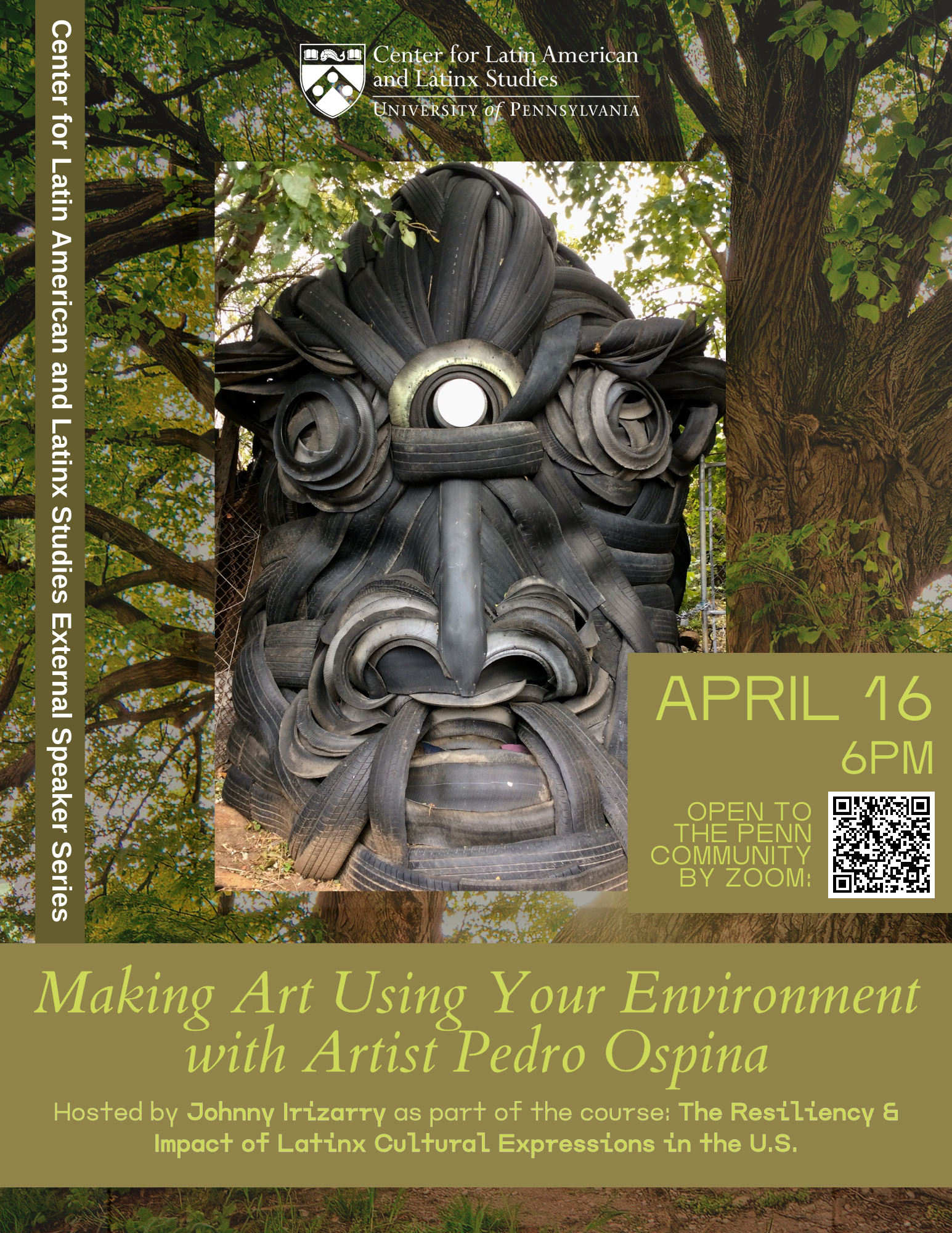CLALSES
Zoom

Hosted by Johnny Irrizary as part of the course LALS 4250: The Resiliency & Impact of Latinx Cultural Expressions in the U.S.
This event is open to the Penn community on Zoom. Register here to attend.
Presenter Bio:
Pedro’s work as an artist explores his search for identity and assimilation in the face of cultural change. Born in Bogotá, Colombia, but raised in New York City, his life’s path has been dedicated to the pursuit of simultaneously exposing himself to a wide range of learning experiences and cultures and then sharing that information and knowledge with those Pedro encounters. To this end, Pedro has sought out and absorbed experiences from a variety of sources; from an academic arts education in the U.S to, apprenticeships with artisans in Mexico, Wales, Colombia, and Brazil, working in inner city public schools throughout the states of Pennsylvania and New York, extensive work in marginal communities in Colombia and Brazil. These experiences have helped Pedro realize the importance and impact that art has in the life of an individual and how he as an artist may facilitate education, change and growth. Pedro’s character thrives on change and is stimulated by challenges and new environments. It is this fact that in 1997 brought him to the American School of Sao Paulo, Brazil to teach high school art. While teaching Pedro became fascinated with popular culture and decided to invest his energies in co-founding a community-based art center in an under-developed neighborhood. After eight years, Casa Cultura de Santa Teresa is a three-story building consisting of art rooms, theater, library, computer lab and offers over 12 classes to the local community. Pedro presently gives workshops, implements community projects and creates his own work. Pedro’s time is divided between Sao Paulo, Brazil, New York, and Philadelphia.
In 2015, Pedro founded The Open Kitchen Sculpture Garden (TOKSG) in Norris Square, Philadelphia. TOKSG has proven to be a catalyst for transformation. Employing sculptural techniques, the original layout of the physical environment was altered using the very trash and construction debris that previously littered the lot. At the entrance of the space, a monumental Indigenous sculpture head with two faces greet visitors. The head is really a dumpster that was covered and sculpted with two tons of cement. The space now contains: an earth oven, tree house, green house, fire pit, two stages; a covered cooking area and a twenty-foot solar-powered off-grid woodshop shipping container. The vegetable garden is located on the outer perimeter along the street curb so that it can be accessible to anyone in the community at any time. In addition, it serves as a deterrent, preventing people from dumping trash on the sidewalk. The once abandoned lots have now become a visually unique space that demonstrates what can be done with what is readily available. It is a laboratory that thrives on creative expression, practical solutions, and experience. Its simplicity and beauty give it an essence that is open to constant change and collaboration. It allows and provides opportunities for interaction while attracting possibilities, resources, and people.

 Center for Latin American and Latinx Studies
Center for Latin American and Latinx Studies